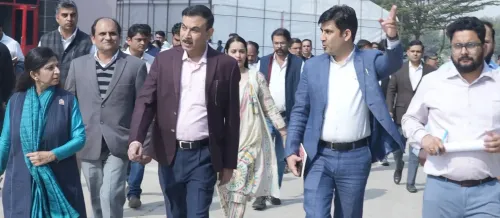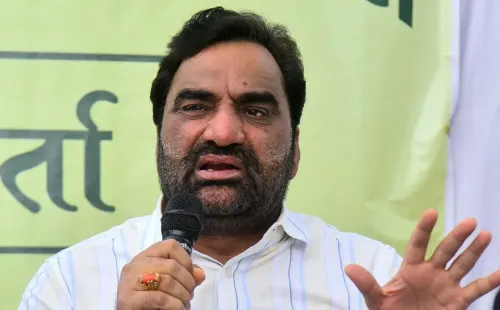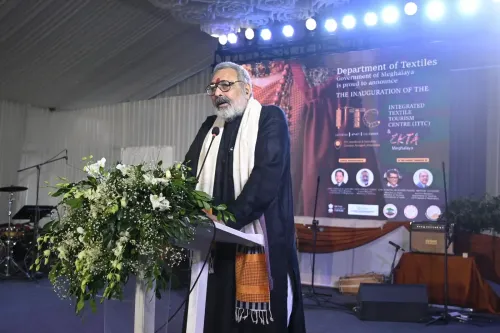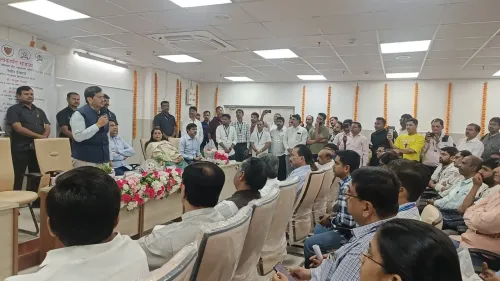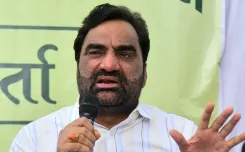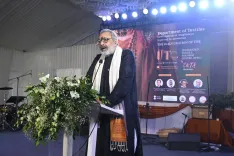Why Are Power Consumers Protesting Against Pre-Paid Meter Bills?
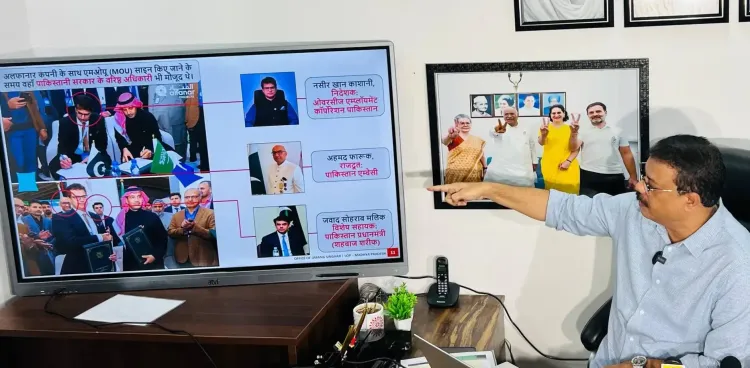
Synopsis
Key Takeaways
- Massive protests against prepaid smart meters in Bhopal.
- Concerns about consumer rights and rising electricity costs.
- Demand for an investigation into meter contracts.
- Protesters cite Section 47(5) of the Electricity Act, 2003.
- Calls for transparency and accountability from government officials.
Bhopal, Oct 6 (NationPress) A large gathering of electricity consumers from various parts of Madhya Pradesh assembled at Shahjahani Park in Bhopal on Monday to voice their opposition to the implementation of prepaid smart meters.
The protest, organized by the Madhya Pradesh Electricity Consumers Association (MECA), kicked off around 12:30 PM and drew participants from districts such as Gwalior, Indore, Jabalpur, Vidisha, Sehore, and Satna.
Demonstrators shouted slogans against the government's initiative for prepaid metering, labeling it as an undue burden on the underprivileged and a breach of consumer rights. Many expressed concerns that following the installation of these smart meters, their electricity bills had either doubled or even tripled, with some consumers receiving bills twice a month.
Opposition leader Umang Singhar raised alarms regarding the smart meter project in Madhya Pradesh, referring to them as “spy meters” and highlighting potential privacy, security, and financial dangers. He pointed out foreign connections, including personnel from Pakistan, dubious contracts worth Rs 2,000 crore, and risks of data misuse. With just 18 percent of meters installed, complaints have escalated.
Singhar demanded a thorough investigation into the firms involved, transparency regarding KYC data management, and accountability from both the state and central governments.
The protesters contend that the transition to pre-paid meters contravenes Section 47(5) of the Electricity Act, 2003, which permits consumers to opt for either prepaid or post-paid billing.
They urged an immediate halt to the rollout, citing unclear tariffs and the steep installation costs, which are allegedly Rs 6,000 per meter. To reinforce their claims, protesters presented cases of consumers burdened with excessive power bills, including a farmer from Guna district who received a shocking Rs 2 lakh bill for domestic power use.


